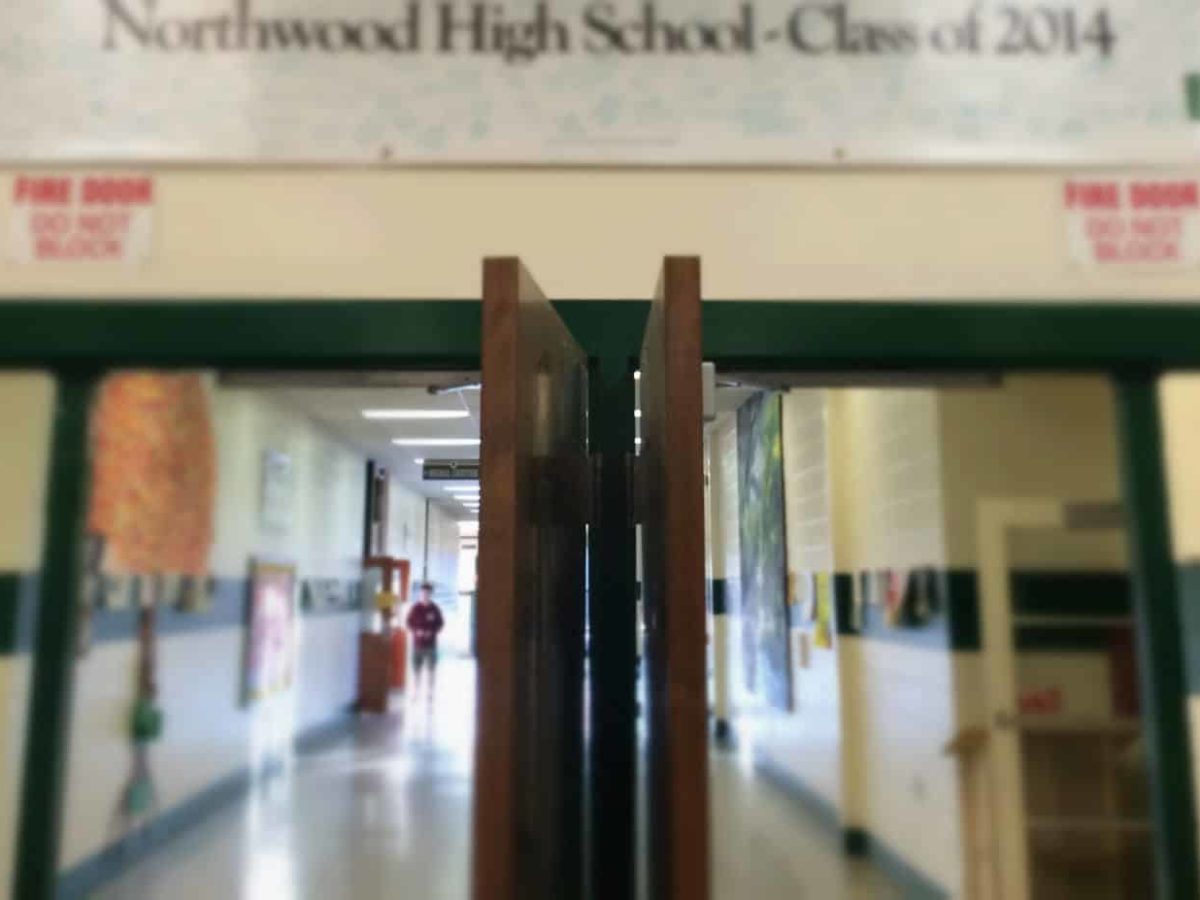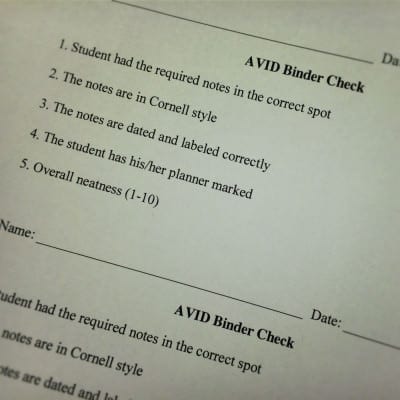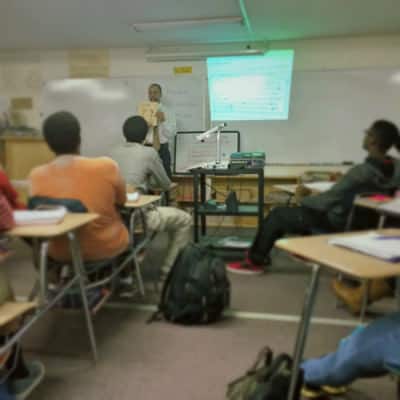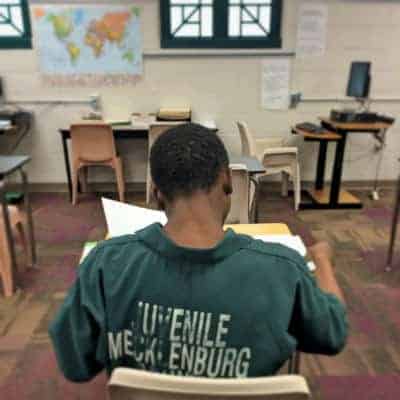



He tells stories of his students over the years – one who went on to Duke, another who travels to China regularly for her job, another who lives in New York City. The favorites keep up with Sr. Foust.
His only class rule: Come to class ready to learn.
For Sr. Foust, it’s all about academics, opportunities, and relationships.
Teaching and teaching Spanish
In his Spanish classes, the emphasis is on higher order thinking skills. He realized early on that if he taught the students a bunch of words and phrases, inevitably they ended up in another country needing vocabulary he hadn’t taught and they didn’t know. He shifted his teaching to helping students understand how to figure things out, relying heavily on deductive reasoning. Sr. Foust says, “The students say they don’t like to think, but they feel smart when they figure something out.” He never just tells them the answer to a question.
“The students say they don’t like to think, but they feel smart when they figure something out”
During his Spanish 1 class, the students are using an interactive program called Socrative to learn how to write sentences using a specific verb. One student posts, “Sr. Foustinator es de Carolina de Norte.” Foust laughs so hard he cries. Following his lead, the class joins in.
His day starts at 6:45 a.m. on most mornings, and tonight he won’t leave until 5:30 p.m. or so. There is a site meeting for AVID, and he is the coordinator. AVID stands for Advancement Via Individual Determination. Then he is meeting with the student body president. He is the adviser to Student Council as well. When he finally leaves school, he will go to an event for Habitat for Humanity, and then there is work to be done at home to get ready for school tomorrow. Just a day in the life of this teacher.
The AVID program
Sr. Foust’s 21st Century approach to teaching informs his work with the AVID students. Combining rigor with support, AVID is a national program that tries to level the playing field for minority, rural, and low-income students. AVID’s goal is to increase the college-going rate, which “will strengthen our workforce, economy, and democracy.” AVID targets kids in the academic middle with GPAs between 2.0 and 3.5.1
The day I visit Sr. Foust, 24 students attend the AVID freshman honors English class. It is just as rigorous as any other honors English class for 9th graders, but the pacing is different. This class will last all year instead of a semester, and 45 minutes of each block period (1½ hours) focuses on strategies and skills for success. Three kids in the class are white.
This cohort of students will stay together through high school taking honors biology in 10th grade, honors American History in 11th grade, and AP U.S. Government in 12th grade, all of which are paired with the AVID elective class for that grade. Early on, the elective focus is on organization. Binders are checked frequently. And the students have the opportunity to visit colleges. The day before my visit, the 11th graders toured Greensboro College and Guilford College. As juniors, they take an SAT/ACT preparation class, and as seniors, they receive assistance in applying to college and securing financial aid. Students are encouraged to take additional honors and AP classes on their own.
All of the AVID students at this high school who graduated in May 2014 were accepted to a college or university.2
In North Carolina, 120 middle and high schools across the state have AVID programs. Many districts and states have contracts for third-party evaluations of AVID programs.
Nationally, in 2012-13, there were 34,234 AVID seniors:
- 76% of their parents did not graduate from college,
- 74% of the seniors qualified for free and reduced price lunch,
- 21% were English language learners,
- 57% were Hispanic/Latino, and
- 15% were black.
Of these seniors,
- 99% graduated from high school on time with an average GPA of 3.2,
- 86% applied to a 4-year college,
- 76% were accepted,
- 60% planned to attend a 4-year college, and
- 30% planned to attend a 2-year college.3
What about the others?
Sr. Foust says most of the AVID students at his high school probably wouldn’t go on to college without the AVID program. But it’s not enough. “We are catching 25-27 kids in each grade. Who is catching the others?,” he asks. About 80 8th graders apply each year to be in AVID in this high school. Foust thinks about half of that group could use the support.
In the meantime, Sr. Foust uses the AVID site meetings to find ways for AVID teachers to inform the work of other teachers in the school and for other teachers to inform the work of the AVID teachers. Last year, a technique used in the science classes for C-E-R (claim-evidence-reasoning) not only was incorporated into the AVID program but also became the focus for staff training to promote complexity in writing.
When I talk to educators, some say any AVID program is only as good as the coordinator. Sr. Foust says it is also important to emphasize consistency among the teachers and strengthen connections between classes. Teachers are not assigned to teach AVID students; it’s a choice. The students, teachers, and parents sign a contract each year to participate.
Sr. Foust is wary of cookie-cutter approaches to education, and his goal is not to AVIDize the high school. Programs like AVID are an important tool in the toolbox, and we should never settle for not reaching all of the students, but AVID is not the right program for all students, he says.
Foust says, “We want to build a culture where all students are making a substantial connection with an adult in the school building. We know that makes a difference.”
Lesson learned. Particular programs like AVID are important, but as Foust notes, it’s more about academics, opportunities, and relationships for all students. 31 years in, the Foustinator is hitting his stride.
Editor’s note: Mebane Rash and Señor Foust were both in the 1997-99 Friday Fellows Class for Emerging Leaders.






